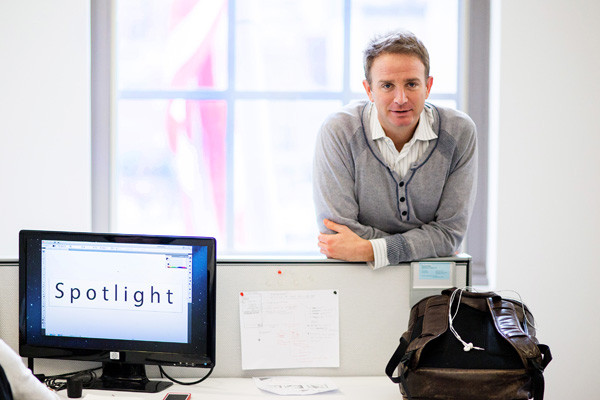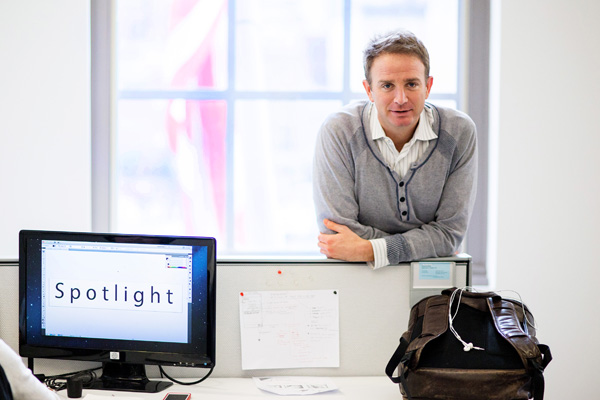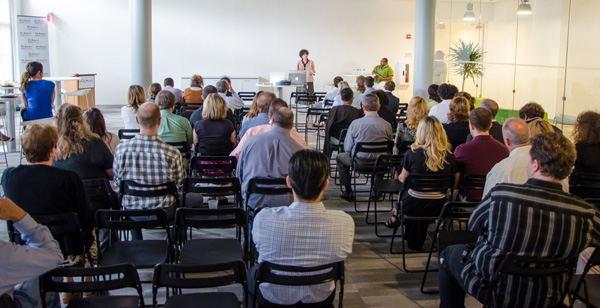If you’re searching for fresh ideas, the office of a print newsroom doesn’t immediately come to mind. Yet, the Project Liberty Digital Incubator — a six-month program where digital media startups share space, knowledge and disruptive technologies with the Philadelphia Inquirer — is proving the country’s third oldest news outlet is a source for innovation.
The incubator is only three years old, and has already nurtured some of Philly’s most promising young companies, including ElectNext, SnipSnap, Cloudmine, Rumble, tapCLIQ, TuvaLabs, Zaahah, and A View From My Seat. Combined, Project Liberty graduates have raised $7 million and created 50-plus jobs – and counting.
Project Liberty is a partnership between Ben Franklin Technology Partners of Southeastern Pennsylvania (BFTP/SEP) and Interstate General Media (IGM), publisher of the Philadelphia Inquirer, Daily News and Philly.com. Project Liberty is funded by the John S. and James L. Knight Foundation. Last August, the foundation awarded the project an additional $345,000 to expand and continue programming. The Incubator is now connecting the companies with smaller news outlets that can benefit from new innovations.
With the new funding, Project Liberty is welcoming its fourth company class, including Fitly, a mobile/web app that provides nutritional information to families, and VUID (Voluntary unique ID), which enables people to access secure content from their mobile phone with a digital identification number. Two current companies, TuvaLabs and A View From My Seat, will also remain in the Incubator.
When they launched in January of 2011, Project Liberty was the first media-hosted incubator in the United States. The New York Times and the Boston Globe have since followed suit.
Clients of Project Liberty access all the traditional incubator features – including mentorship and strategic business counseling from BFTP/SEP, which manages the Incubator, and a dedicated desk and meeting space from IGM — but they also get a living laboratory to develop their products.
“The companies are right there on the floor with all the people from the Inquirer and the Daily News,” says Omar Mencin, Director of Special Projects for BFTP/SEP. “They’ve had the chance to integrate what they’re doing with the online properties the paper has. They’re able to use those as test cases, which is a huge benefit for a startup.”
As a tenant, tapCLIQ integrated their mobile advertising solution with the Philly.com platform and ran campaigns for FreshDirect and Susquehanna Bank. TuvaLabs used Inquirer articles from the sports and business sections for their educational software, which employs current events in math lessons. ElectNext’s relationship with Philly.com helped them develop their “political baseball card,” a widget for news articles that provides background on politicians.
“A digital media incubator where companies get to partner with the Philadelphia Inquirer and Daily News is interesting to us,” says Mencin. “Ben Franklin has historically tried to help identify areas where Pennsylvania can develop a competitive ecosystem. In digital media, Philadelphia can spawn some really great companies. We’re trying to help towards that end. To date, Ben Franklin has invested in six of the companies.”
Some of the transformations have been stunning. When SnipSnap – which enables users to carry e-coupons on their mobile device — joined the inaugural class, they barely had a working prototype. BFTP/SEP walked SnipSnap through the investment process and advised them on approaching investors. The startup also worked with IGM’s sales and publishing teams to fine-tune their product.
Today, SnipSnap is a growing company with 2 million users, $2 million of startup capital, and 15 retail partnerships. Ted Mann, Founder and CEO, also recognizes his tight peer group as an asset.
“You go through all the phases of a startup with a bunch of likeminded people doing the same thing,” he says. “I always had someone to turn to if I needed advice. The bonds we formed at the incubator were incredibly strong and remain so to this day,” he said.
A View from My Seat is on a similar path. Since joining Project Liberty, the company – which adds visual information to event seating charts – landed a partnership with a major ticketing firm and tripled their user-base. “We came in here struggling to get our concept together,” says Frank Panko, Founder and CEO. “We had some general ideas of where we wanted to go and things we wanted to try. Since we’ve been here we’ve been able to flesh out a lot of ideas and some are actually worth perusing.”
BFTP/SEP, whose active investment group makes between 20 and 30 investments per year, is also benefiting from Project Liberty. “It’s a great way to find investment opportunities,” says Mencin. “Our due diligence is very separate from the incubator’s. We’ve invested in nearly all the companies…It’s been great for us.”
Last year, IGM moved from the multi-story offices at 400 Broad Street to a single floor at 8th and Market, which spans the entire city block. All three publications share an open floor — with Project Liberty in the center.
“We’re really excited about the future we’ve laid out,” says Mark Block, Vice President of External Communications for IGM. “Our company has access to all these wonderfully innovative ideas and products that are at a very early stage but still flexible enough to adapt to the needs of our sector.”
When asked for examples, Block points to Rumble, a startup ambitious enough to help the publishing industry transition to mobile platforms. Lucky for the Daily News, the company joined just as the tabloid was gearing up for their first tablet-friendly addition. Rumble created the entire app.
“Everyone is aware of what those [start-ups] are doing, how they’re working with our products, and how they’re working with our staff,” says Block. “They always have responsibilities whether it’s on the business side or the editorial side. We’re very happy about that because it shows diversity in terms of exposure the companies receive.”
A strong ecosystem, however, requires multiple partnerships. To that end, Project Liberty has benefitted from DreamIt Ventures, who sends clients, and Drexel University Co-Op, who provides student-employees. The Knight Foundation has also helped Project Liberty grads engage with other local programs and find new partners.
“Nothing could be more gratifying then seeing the companies that reside in our headquarters go on to receive significant investment,” says Block. “The second thing that is very rewarding is to see these companies remain in Pennsylvania to inspire job creation, further technology development, and really utilize the many academic resources of the city.”
“After a year or two, a lot of startups just fade away,” says Mencin. “The companies that have come through this program are growing. Most are attracting outside investment – it’s a really good indicator of success.”
DANA HENRY is a Philadelphia-based freelance writer and Innovation & Jobs News editor for sister publicaton Flying Kite. Send feedback here.







